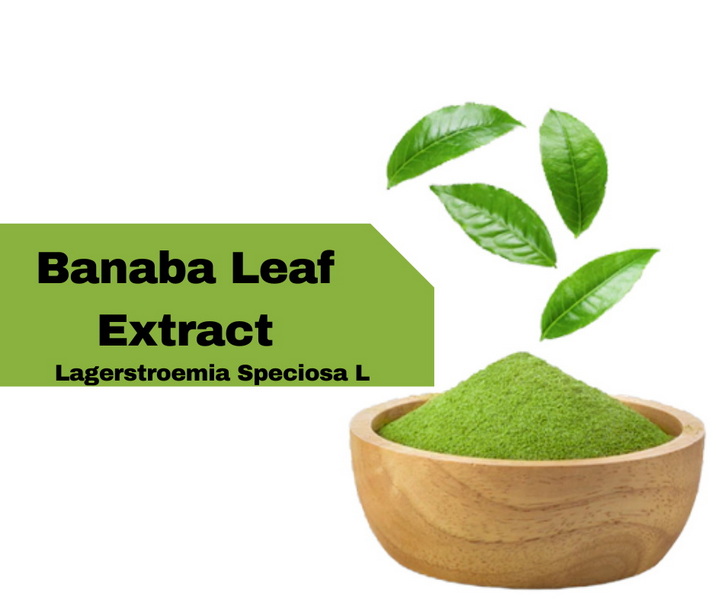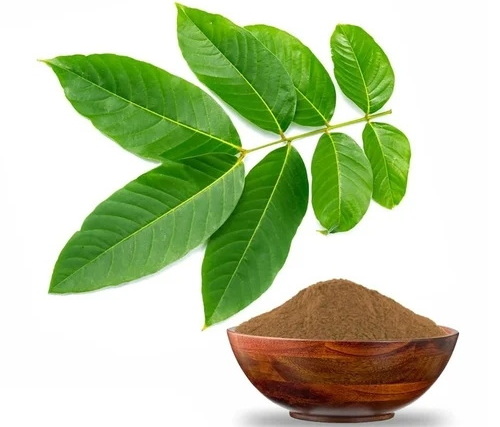Content Menu
● Introduction to Banaba Leaf Extract
>> Corosolic Acid and Its Role
● Benefits of Banaba Leaf Extract
>> 1. Blood Sugar Regulation
>> 2. Antioxidant Properties
>> 3. Weight Management
>> 4. Cardiovascular Health
>> 5. Protection Against Kidney Damage
>> 6. Anti-Inflammatory Effects
>> 7. Neuroprotective Benefits
● Uses of Banaba Leaf Extract
>> Traditional Use
>> Modern Applications
● Side Effects and Dosage
>> Potential Interactions
>> Pregnancy and Breastfeeding
● Conclusion
● FAQs
>> 1. What is Banaba Leaf Extract Used For?
>> 2. How Does Banaba Leaf Extract Lower Blood Sugar?
>> 3. Are There Any Side Effects of Banaba Leaf Extract?
>> 4. Can Banaba Leaf Extract Help with Weight Loss?
>> 5. Is Banaba Leaf Extract Safe for Everyone?
● Citations:
Banaba leaf extract, derived from the Lagerstroemia speciosa tree, has been used for centuries in traditional medicine, particularly in Southeast Asia. It is renowned for its potential health benefits, including blood sugar regulation, antioxidant properties, and weight management. This article will delve into the benefits, uses, and side effects of banaba leaf extract, providing insights into its applications and potential risks.

Introduction to Banaba Leaf Extract
Banaba leaves are rich in compounds like corosolic acid, ellagic acid, and gallic acid, which contribute to their medicinal properties. The primary active compound, corosolic acid, is known for its insulin-like effects, helping to lower blood glucose levels by facilitating glucose uptake into cells.
Corosolic Acid and Its Role
Corosolic acid is a triterpenoid compound that mimics insulin, enhancing glucose uptake in cells and reducing blood sugar levels. Studies have shown that this compound can decrease blood sugar levels within 60 minutes in human subjects. Its antihyperlipidemic and antioxidant activities also make it beneficial for lipid metabolism and reducing oxidative stress.
Benefits of Banaba Leaf Extract
1. Blood Sugar Regulation
Banaba leaf extract is most recognized for its ability to regulate blood sugar levels. This is primarily due to corosolic acid, which acts similarly to insulin by facilitating glucose uptake into cells. Studies have demonstrated significant reductions in blood glucose levels in individuals with type 2 diabetes.
2. Antioxidant Properties
Banaba leaves are rich in antioxidants such as ellagic acid, gallic acid, and corosolic acid. These compounds help neutralize free radicals, reducing oxidative stress and preventing cellular damage. This antioxidant activity is crucial for maintaining overall health and preventing chronic diseases.
3. Weight Management
Emerging research suggests that banaba leaves may aid in weight management. By regulating blood sugar levels, banaba extract can reduce cravings and prevent overeating, supporting weight loss efforts. Additionally, it inhibits adipogenesis and lipogenesis, processes involved in fat cell formation.
4. Cardiovascular Health
Banaba leaf extract may also contribute to cardiovascular health by preventing the formation of harmful blood clots, which are a risk factor for high blood pressure and stroke. This antithrombotic effect can help reduce the risk of cardiovascular diseases.
5. Protection Against Kidney Damage
The antioxidants in banaba leaf extract may offer protective benefits for the kidneys, particularly against damage induced by chemotherapy drugs. This protective effect is significant for individuals undergoing cancer treatment.
6. Anti-Inflammatory Effects
Banaba leaves contain compounds that exhibit anti-inflammatory properties, which can help alleviate symptoms of conditions like arthritis and other inflammatory diseases. This effect is attributed to the reduction of pro-inflammatory cytokines in the body.
7. Neuroprotective Benefits
Some studies suggest that banaba leaf extract may have neuroprotective effects, potentially helping to prevent or slow the progression of neurodegenerative diseases such as Alzheimer's and Parkinson's. This is due to its antioxidant properties, which protect neurons from oxidative damage.

Uses of Banaba Leaf Extract
Banaba leaf extract is used in various forms, including capsules, teas, and supplements. It is often recommended for individuals with prediabetes or type 2 diabetes to help manage blood sugar levels. Additionally, it is used for its antioxidant properties and potential benefits in weight management.
Traditional Use
Traditionally, banaba leaves are consumed as a tea or added to soups and dishes in Southeast Asian cuisine. This traditional use highlights its cultural significance and long-standing acceptance as a health-promoting ingredient.
Modern Applications
In modern times, banaba leaf extract is incorporated into dietary supplements and health products. Its popularity stems from its natural and non-invasive approach to managing health conditions, particularly those related to blood sugar regulation.
Side Effects and Dosage
While banaba leaf extract is generally considered safe, it may interact with certain medications, such as blood thinners and diabetes medications. The recommended dosage varies, but typical ranges are between 10 to 48 mg per day of corosolic acid. It is advisable to consult a healthcare provider before starting any supplement regimen.
Potential Interactions
Individuals taking medications for diabetes or blood thinners should be cautious when using banaba leaf extract, as it may enhance the effects of these drugs. Monitoring blood sugar levels and adjusting medication doses under medical supervision is crucial.
Pregnancy and Breastfeeding
There is limited research on the safety of banaba leaf extract during pregnancy and breastfeeding. Therefore, it is recommended that pregnant or breastfeeding women consult their healthcare provider before using any supplements.
Conclusion
Banaba leaf extract offers a range of health benefits, from blood sugar regulation to antioxidant support and potential weight management. Its active compounds, particularly corosolic acid, contribute to these effects. However, it is essential to use banaba leaf extract under medical supervision, especially for individuals with chronic conditions or those taking medications.

FAQs
1. What is Banaba Leaf Extract Used For?
Banaba leaf extract is primarily used for its ability to regulate blood sugar levels and provide antioxidant support. It is also used for weight management and may offer benefits in cardiovascular health.
2. How Does Banaba Leaf Extract Lower Blood Sugar?
Banaba leaf extract contains corosolic acid, which mimics insulin by facilitating glucose uptake into cells, thereby lowering blood sugar levels.
3. Are There Any Side Effects of Banaba Leaf Extract?
While generally safe, banaba leaf extract may interact with certain medications. It is advisable to consult a healthcare provider before use, especially if you are on blood thinners or diabetes medications.
4. Can Banaba Leaf Extract Help with Weight Loss?
Banaba leaf extract may aid in weight management by regulating blood sugar levels, reducing cravings, and inhibiting fat cell formation.
5. Is Banaba Leaf Extract Safe for Everyone?
Banaba leaf extract is generally considered safe, but individuals with chronic conditions or those taking medications should consult a healthcare provider before use.
Citations:
[1] https://naturmedscientific.com/banaba-leaf/
[2] https://research.lpubatangas.edu.ph/wp-content/uploads/2019/06/Steth-2014-001.pdf
[3] https://www.cnblogs.com/apachecn/p/18473545
[4] https://pmc.ncbi.nlm.nih.gov/articles/PMC3468018/
[5] https://pubmed.ncbi.nlm.nih.gov/22095937/
[6] https://huggingface.co/openbmb/VisCPM-Chat/raw/main/vocab.txt
[7] https://www.webmd.com/vitamins/ai/ingredientmono-1089/banaba
[8] https://www.healthline.com/nutrition/banaba-leaf






























